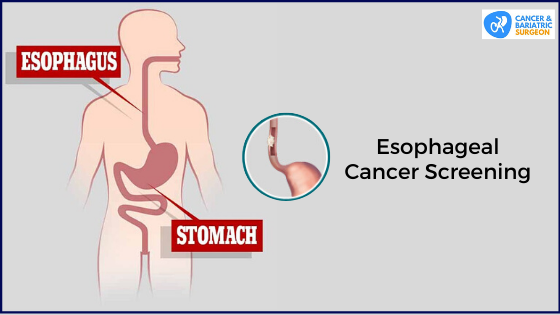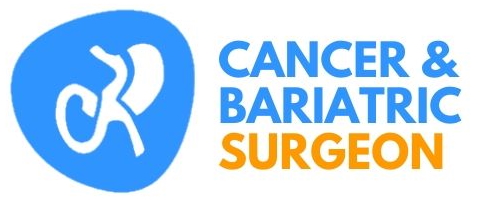Upper Gi Cancer And Advanced Endoscopic Surgeon | Dr. Prabhu N Nesargikar
What is Screening?
Screening is the process of looking for cancer growth in people who have no symptoms of the disease.
Patients who are at risk of getting esophageal cancer are advised by doctors to obtain a screening done as a precautionary. There is no standard test or scan set for esophageal cancer screening. Most physicians recommend tests such as chromoendoscopy, fluorescence spectroscopy or an esophagoscopy as the situation demands.
Usually, physicians opt for the esophagoscopy to screen for esophageal cancer. This procedure involves inserting a tube-like instrument with a camera at the end into the esophagus through the mouth or nose. This helps the physician to get a more unobstructed view of the area for cancerous growths. The procedure may involve a method called brush cytology. In this process, the doctor brushes away some esophageal cells and uses them for microscopic testing.
Another technique is called chromoendoscopy, that involves spraying dye into the esophagus lining and checking for staining.
During fluorescence spectroscopy, a light probe is gradually passed through an endoscope and moved onto the lining of the esophagus. Fluorescence spectroscopy is a type of spectroscopy method which is based on the analysis of fluorescence light, concerning the emission spectrum. Properties of the fluorescence are frequently used to identify substances. Areas that reflect less light may indicate high chances of malignancy. At times when a tumour is observed, a sample is retrieved and sent for further testing. This is called a biopsy. It is sent to a lab for testing to check if the growth is malign or benign.

Esophageal cancer screening is recommended in the following cases
- Patients with heartburn once a week or more for more than four to five years. Usually, there is no relief experienced from traditional heartburn medicines.
- History of heavy smoking
- Patients with diagnosed Barrett’s esophagus. Barrett’s esophagus is a condition with abnormal cells in the lining of the food pipe. These cell changes can change malign over time. But it is essential to know that very few people with Barrett’s esophagus develop esophagus cancer.
- Achalasia: Achalasia is a rare disorder. The body of a patient who suffers from achalasia is unable to pass food and liquid into their stomach. This problem occurs when the nerves in the tube connecting your mouth and stomach get damaged.
- Tylosis: Howel–Evans syndrome or Tylosis is a rare condition that causes thickening of the skin in the palms of the hands and the feet soles. The Tylosis syndrome is found to be associated with an increased risk of Esophagus cancer.
- Esophageal webs: Esophageal webs are thin membranes that grow across the inside of the upper part of the esophagus and may cause difficulty swallowing.
- Patients diagnosed with squamous cell cancer that is related to tobacco use
Esophageal cancer screenings are recommended for high-risk patients. Some of the risk factors taken into consideration are:
- Heavy consumption of alcohol
- Excess weight
- Male over the age of 55.
Esophageal cancer is found to be more prevalent in Africa, Asia and the middle east. It may be indicative of nutritional factors playing a role. Micronutrient deficiencies of zinc, molybdenum, magnesium, and iron in the soil are also contributing factors.
